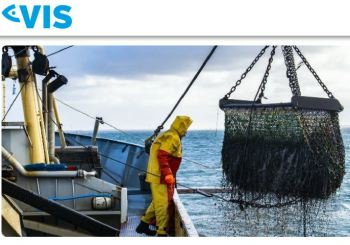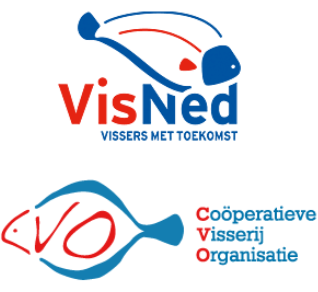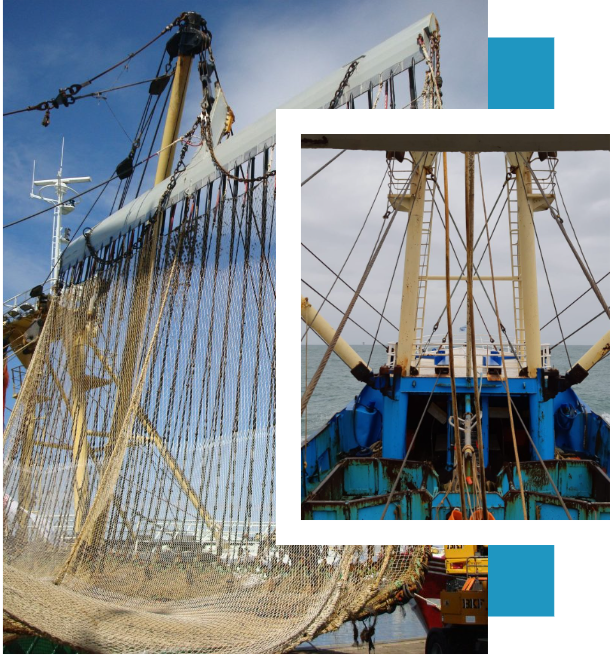|

Photo: vismagazine.nl
MSC certification of Dutch trawl fleet partly suspended
 NETHERLANDS
NETHERLANDS
Friday, April 19, 2024, 07:10 (GMT + 9)
The Marine Stewardship Council (MSC) announces that the certificates for sole, beam trawling and flyshoot and otter trawl fishing in the North Sea will be suspended with effect from April 25, 2024. In a response, both the Cooperative Fisheries Organization (CVO) and VisNed indicate that they are disappointed in the sustainability organization's decision.
.png) Since October 31, 2019, the Joint Demersal Fisheries (JDF) in the North Sea, Skagerrak and Kattegat has been certified. An MSC certification can be suspended if fishing no longer meets the conditions or if a fish stock is no longer healthy. Based on the third annual audit by the certification company (Control Union (UK) Limited), the following certificates have been suspended: Since October 31, 2019, the Joint Demersal Fisheries (JDF) in the North Sea, Skagerrak and Kattegat has been certified. An MSC certification can be suspended if fishing no longer meets the conditions or if a fish stock is no longer healthy. Based on the third annual audit by the certification company (Control Union (UK) Limited), the following certificates have been suspended:
- North Sea sole ( Solea solea ) in ICES 4
- CVO-4-BT2: CVO (Dutch fishing client) beam trawl fishery 70-119 mm in the North Sea
- CVO-4-TR1: CVO demersal otter trawls/flyshooter/twin rig fishing >100 mm in the North Sea
 In addition, the certificates for fishing for the Northern shrimp ( Pandalus borealis ) in the Skagerrak and the Norwegian Diep (ICES division 3.a and 4.a East) and the catch of tusk ( Brosme brosme ) from the Joint Demersal Fisheries have also been obtained. suspended. There are other Nordic shrimp fisheries that remain certified and can continue to supply MSC certified Nordic shrimp. In addition, the certificates for fishing for the Northern shrimp ( Pandalus borealis ) in the Skagerrak and the Norwegian Diep (ICES division 3.a and 4.a East) and the catch of tusk ( Brosme brosme ) from the Joint Demersal Fisheries have also been obtained. suspended. There are other Nordic shrimp fisheries that remain certified and can continue to supply MSC certified Nordic shrimp.
Suspension of North Sea sole
“The Cooperative Fisheries Organization (CVO - Coöperatieve Visserij Organisatie) regrets the suspension of sole, tusk and gear types BT2 and TR1,” responds Amerik Schuitemaker on behalf of the organization. VisNed also regrets the decision. “Although this is undoubtedly the case according to the MSC rules, the fishing vessel VisNed is very disappointed with the suspension decisions,” said Geert Meun on behalf of the fishing boat organization.
 MSC has announced that certification for North Sea sole has been suspended “due to a low stock level in combination with low recruitment”. Schuitemaker calls it a setback: “Since the suspension is based on the disappointing stock estimate from ICES for sole and the fishery has no direct influence on this.” ICES data shows that the fleet has continuously operated within the MSY principles (Maximally Sustainable Harvest rules). Meun: “No, this is a consequence of different data in the models on which the advice is based, which has resulted in a different status assessment. In short, the certificate has been suspended due to procedures and rules and great uncertainty among scientists about the size of the stock, which is very unfortunate for the fishing sector and the buyers of this product.” MSC has announced that certification for North Sea sole has been suspended “due to a low stock level in combination with low recruitment”. Schuitemaker calls it a setback: “Since the suspension is based on the disappointing stock estimate from ICES for sole and the fishery has no direct influence on this.” ICES data shows that the fleet has continuously operated within the MSY principles (Maximally Sustainable Harvest rules). Meun: “No, this is a consequence of different data in the models on which the advice is based, which has resulted in a different status assessment. In short, the certificate has been suspended due to procedures and rules and great uncertainty among scientists about the size of the stock, which is very unfortunate for the fishing sector and the buyers of this product.”
Suspension BT2 and TR1
 The suspension for BT2 and TR1 is at gear level, which includes the beam trawl gear with which Dutch fishermen fish for sole and plaice. The certification for these fishing gears is being suspended because, according to MSC, there is uncertainty about the impact on the stock of red gurnard, an important bycatch species. “This suspension is completely unpleasant,” says Meun. “This is based on the increasing bycatch of red gurnard.” According to him, red gurnard comprises about 5 percent of the total kilograms of fish caught. “There are no European management measures for this species. They are not fished specifically, but are increasingly caught as bycatch. Apparently this is a result of an increase in this stock and due to a lack of scientific data, certification for the fishing gear that produces this bycatch is suspended. And this has enormous consequences for the MSC label of the target species of sole and plaice, which are now losing the certificate. This certainly has major negative consequences for the plaice sales market.” The suspension for BT2 and TR1 is at gear level, which includes the beam trawl gear with which Dutch fishermen fish for sole and plaice. The certification for these fishing gears is being suspended because, according to MSC, there is uncertainty about the impact on the stock of red gurnard, an important bycatch species. “This suspension is completely unpleasant,” says Meun. “This is based on the increasing bycatch of red gurnard.” According to him, red gurnard comprises about 5 percent of the total kilograms of fish caught. “There are no European management measures for this species. They are not fished specifically, but are increasingly caught as bycatch. Apparently this is a result of an increase in this stock and due to a lack of scientific data, certification for the fishing gear that produces this bycatch is suspended. And this has enormous consequences for the MSC label of the target species of sole and plaice, which are now losing the certificate. This certainly has major negative consequences for the plaice sales market.”
 “An important market for MSC plaice has emerged in recent years,” Schuitemaker adds, “and the suspension of BT2 and TR1 puts this market at risk. The CVO has therefore commissioned Wageningen Marine Research to determine the impact of BT2 and TR1 fishing on red gurnard in a desk study. This information could allow the suspension of these fisheries to be lifted at the next audit and the marketing of MSC-certified plaice to be restored.” “An important market for MSC plaice has emerged in recent years,” Schuitemaker adds, “and the suspension of BT2 and TR1 puts this market at risk. The CVO has therefore commissioned Wageningen Marine Research to determine the impact of BT2 and TR1 fishing on red gurnard in a desk study. This information could allow the suspension of these fisheries to be lifted at the next audit and the marketing of MSC-certified plaice to be restored.”
Follow-up
MSC states that fisheries have until June 25 to come up with an action plan. MSC: “The suspension will remain in effect until fisheries have satisfactorily addressed the reasons for the suspension.” If the plan does not meet the MSC conditions, the certificates will expire. “We will have to talk to the auditor to have this suspension reversed as quickly as possible,” Meun concludes.
Source: vismagazine.nl (translated from original in Dutch)
[email protected]
www.seafood.media
|



